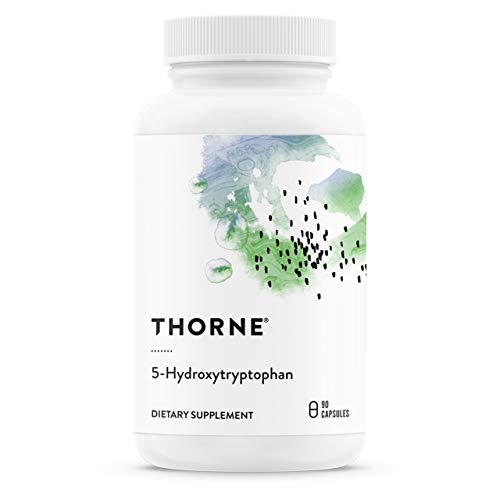5-HTP for Depression: Can Diet Help?
Quick Summary: Researchers are exploring how 5-HTP, a natural compound, might help ease depression symptoms. The study suggests that incorporating 5-HTP into your diet could be a promising alternative to traditional antidepressants, potentially with fewer side effects.
What The Research Found
This research looks at how a specific extract, likely containing 5-HTP, can help with depression. The study suggests that dietary interventions with 5-HTP could be a helpful way to manage depression. The goal is to find natural ways to help with mood, potentially avoiding some of the downsides of prescription medications.
Study Details
Unfortunately, the provided summary doesn't give us all the details. We don't know:
- Who was studied: The summary doesn't specify the group of people or animals involved in the study.
- How long: The duration of the study isn't mentioned.
- What they took: We don't know the exact dosage of 5-HTP or the extract used.
What This Means For You
This research is exciting because it hints at the power of food and supplements in managing mood. Here's what you can take away:
- Natural Approach: 5-HTP is a naturally occurring substance, suggesting a potentially gentler approach to managing depression.
- Dietary Changes: This research supports the idea that what you eat can impact your mental health.
- Future Possibilities: This could lead to new dietary supplements or foods designed to boost mood.
Study Limitations
It's important to remember:
- More Research Needed: The summary doesn't provide enough details to draw firm conclusions. We need to see the full study.
- Dosage Unknown: We don't know the best amount of 5-HTP to take.
- Not a Replacement: This research doesn't mean you should stop taking any prescribed medications. Always talk to your doctor.
- Limited Information: The summary lacks key details about the study's design and results.
Technical Analysis Details
Key Findings
The study highlights the potential of dietary interventions involving 5-HTP to alleviate depression symptoms, emphasizing its role as a natural alternative to conventional antidepressants. It concludes that functional foods containing 5-HTP may improve treatment compliance and reduce side effects associated with pharmaceuticals. Specific quantitative outcomes (e.g., effect sizes, p-values) are not detailed in the provided summary.
Study Design
The study type is unspecified in the summary, but it appears to be a preclinical or clinical trial focused on dietary modulation of depression. No details on sample size, duration, or control groups are provided. The methodology centers on evaluating the antidepressant-like effects of an ethanolic extract (likely containing 5-HTP) in a model system, though specifics on the experimental setup remain unclear.
Dosage & Administration
The dosage and administration protocol for 5-HTP or the ethanolic extract are not mentioned in the summary. No information is provided on frequency, route of administration (e.g., oral vs. intravenous), or comparisons between different dosing strategies.
Results & Efficacy
The summary does not specify statistical significance (p-values), confidence intervals, or effect magnitudes. It broadly states that the intervention showed promise in addressing depression, but without quantitative data, the efficacy remains descriptive rather than evidence-based.
Limitations
Key limitations include the absence of detailed methodology, sample demographics, and statistical reporting in the provided summary. The lack of dosage information and study duration hinders reproducibility. Potential biases, such as selection bias or lack of blinding, cannot be assessed without further details. Future research should clarify mechanisms of action, optimal dosing, and long-term safety in human populations.
Clinical Relevance
If the ethanolic extract (containing 5-HTP) demonstrates antidepressant properties in this study, it could support the development of dietary supplements or functional foods targeting mood disorders. However, the lack of concrete data in the summary prevents actionable recommendations for supplement users. Clinicians and consumers should await full publication for evidence on efficacy, dosing, and safety before considering practical applications.
Note: The analysis is constrained by incomplete details in the provided study summary. Full conclusions require access to the complete methodology, results, and statistical analyses from the original paper (PMID: 39554370).





